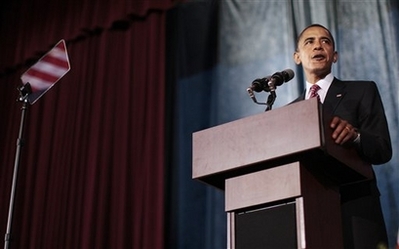“[N]obody knows who the faceless figures, who often appear as motionless couples are, or why they are turning up at high profile events. Theories include the possibilities that they are limelight-seeking pranksters, performance artists or that they are at the centre of a viral marketing campaign for an as-yet unknown product of forthcoming horror film.” I, for one, welcome our new faceless overlords.
Category: World at Large
They’ve lost control again.
“This is a very unusual theft and I am confident that someone locally will have knowledge about who is responsible or where the memorial stone is at present.” By way of Ted, someone has walked away in silence with Ian Curtis’ tombstone. (Here’s the scene of the crime.)
Dream in Black and White.

“After examining the film the three experts are certain: The find from Buenos Aires is a real treasure, a worldwide sensation. Metropolis, the most important silent film in German history, can from this day on be considered to have been rediscovered.” Ave Maria! The original Ghost in the Machine has been found! Before this and this and this and this and this and just about anything else you can think of in the sci-fi department, there was Fritz Lang’s Metropolis, and it’s been rediscovered in an Argentine film vault. (Tour Lang’s city here.)
This unearthed original print is rumored to be 210 minutes long, a full hour and a half longer than any version seen since 1927. “Among the footage that has now been discovered…there are several scenes which are essential in order to understand the film: The role played by the actor Fritz Rasp in the film for instance, can finally be understood. Other scenes, such as for instance the saving of the children from the worker’s underworld, are considerably more dramatic. In brief: ‘Metropolis, Fritz Lang’s most famous film, can be seen through new eyes.’“
Temper, Temper.
“‘McCain was down at the end of the table and we were talking to the head of the guerilla group here at this end of the table and I don’t know what attracted my attention,’ Cochran said. ‘But I saw some kind of quick movement at the bottom of the table and I looked down there and John had reached over and grabbed this guy by the shirt collar and had snatched him up like he was throwing him up out of the chair to tell him what he thought about him or whatever. I don’t know what he was telling him but I thought, good grief, everybody around here has got guns and we were there on a diplomatic mission. I don’t know what had happened to provoke John but he obviously got mad at the guy and he just reached over there and snatched him.”
Um…ok. Senator Thad Cochran (R-MS), who earlier said the idea of McCain as president “sends a cold chill down my spine,” recalls McCain losing his mind on a diplomatic tour to Nicaragua. And before anyone thinks this makes him a tough guy, “easily baited” is a terrible trait in a negotiator…or a president. Update: McCain denies it.
The Manchurian Handbook.

How low have we sunk under Dubya? Apparently, under this administration, we’ve actually been plagiarizing Maoist torture techniques for use in the Gitmo gulag. “‘What makes this document doubly stunning is that these were techniques to get false confessions,’ Levin said. ‘People say we need intelligence, and we do. But we don’t need false intelligence.’”
Obama: Don’t Tread on Me.

“‘The use of patriotism as a political sword or a political shield is as old as the Republic,’ Obama said. ‘Still, what is striking about today’s patriotism debate is the degree to which it remains rooted in the culture wars of the 1960s — in arguments that go back 40 years or more. In the early years of the civil rights movement and opposition to the Vietnam War, defenders of the status quo often accused anybody who questioned the wisdom of government policies of being unpatriotic.’“
From Unity (NH) to Independence (MO), Sen. Obama — pushing back against the current GOP strategy — delivers a long and eloquent speech on the issue of patriotism. [Transcript.] “His speech put the issue in a sweeping historical perspective, speaking of charges that Thomas Jefferson had sold the nation out to the French and that John Adams was in cahoots with the British. He also questioned policies enacted in the name of patriotism, from Adams’ Alien and Sedition Act, Abraham Lincoln’s suspension of habeas corpus and Franklin Delano Roosevelt’s internment of Japanese Americans…’I give him credit. He is taking this very seriously,’ said presidential historian Robert Dallek.”
We screwed up Afghanistan…
“Just as it had on the day before 9/11, Al Qaeda now has a band of terror camps from which to plan and train for attacks against Western targets, including the United States…’The United States faces a threat from Al Qaeda today that is comparable to what it faced on Sept. 11, 2001,’ said Seth Jones, a Pentagon consultant and a terrorism expert at the RAND Corporation.“
In the NYT, Mark Mazzetti and David Rohde explore how, despite all their endless bluster and unconstitutional behavior, the Dubya administration is losing the war against Al Qaeda, and has apparently given up on catching Bin Laden. “By late 2005, many inside the CIA headquarters in Virginia had reached the conclusion that their hunt for Bin Laden had reached a dead end…’You had a very finite number’ of experienced officers, said one former senior intelligence official. ‘Those people all went to Iraq. We were all hurting because of Iraq.’”
…so why not Iran?
“The Democratic leadership’s agreement to commit hundreds of millions of dollars for more secret operations in Iran was remarkable, given the general concerns of officials like Gates, Fallon, and many others. ‘The oversight process has not kept pace — it’s been coöpted’ by the Administration, the person familiar with the contents of the Finding said. ‘The process is broken, and this is dangerous stuff we’re authorizing.‘”
In related news, The New Yorker‘s venerable Sy Hersh reports that the Dubya administration has been stepping up covert activities in Iran…and Congress is once again going along for the ride. “In other words, some members of the Democratic leadership…were willing, in secret, to go along with the Administration in expanding covert activities directed at Iran, while the Party’s presumptive candidate for President, Barack Obama, has said that he favors direct talks and diplomacy.“
North Korea: Now Not-so-Evil.
“This can be a moment of opportunity for North Korea. If North Korea continues to make the right choices, it can repair its relationship with the international community — much as Libya has done over the past few years. If North Korea makes the wrong choices, the United States and our partners in the six-party talks will respond accordingly.” In a Rose Garden statement yesterday, Dubya announces the lifting of trading sanctions against North Korea, on account of Pyongyang seemingly agreeing to nuclear disarmament as outlined in recent multilateral talks. But don’t get the wrong idea, folks: Talking to our enemies is still an act of horrible, dirty appeasement. Update: Slate‘s Fred Kaplan surveys the deal.
Annie, Get Your Gun (and Spend those Millions).

“The court’s five most conservative members have demonstrated that for all of Justice Antonin Scalia’s talk about ‘originalism’ as a coherent constitutional doctrine, those on the judicial right regularly succumb to the temptation to legislate from the bench. They fall in line behind whatever fashions political conservatism is promoting.” In the WP, E.J. Dionne eviscerates the Scalia wing of the Roberts Court for their 5-4 decision in D.C. v. Heller yesterday. As you’ve no doubt heard by now, the decision (penned by Scalia) parsed the Second Amendment in such a way as to overturn the handgun ban in the District (and seemed to simply ignore the existing precedent of US v. Miller.) As Slate‘s Dahlia Lithwick deadpanned, “today’s decision ‘will almost certainly cause more Americans to be killed.’“
As it turns out, the Court went 0-for-2 yesterday, also deciding 5-4 (Alito writing the majority opinion) that McCain-Feingold has been prejudicial against the wealthy. In response, Sen. Feingold noted that the millionaire’s amendment was flawed anyway: “I opposed the millionaire’s amendment in its initial form and I never believed it was a core component of campaign finance reform.” Still, the decision here may not bode well for campaign finance opinions down the pike. “‘What’s most significant here is what this means for the future,’ said Rick Hasen, a professor at Loyola Law School. ‘It tells us that the long-standing limits on corporate and union campaign spending are in grave danger.’”
